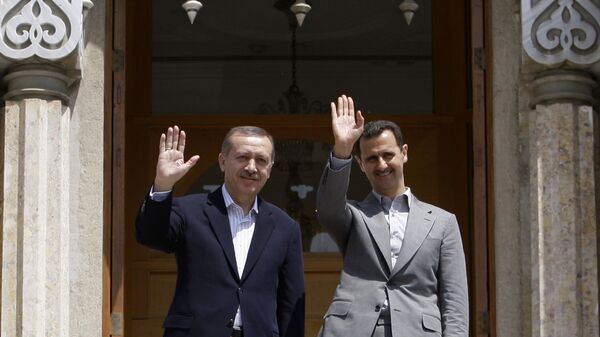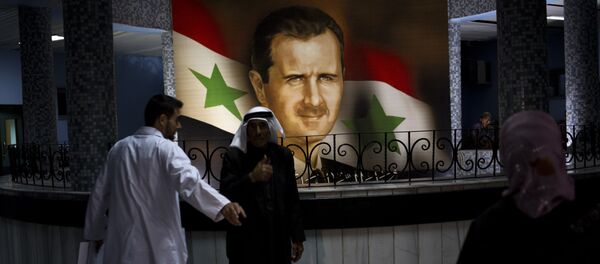Furthermore, the Iranian leader emphasized that Tehran welcomes the return of stability to Turkey, which "will contribute to strengthening peace and stability in the entire region. We have no doubt that some superpowers, as well as terrorists, do not want for stability to reign in Muslim countries. We must therefore all join together to fight the terrorists, for the sake of stability in the region and the world as a whole."
In turn, President Erdogan thanked the Iranian president for the call and stated that "we are even more determined to work hand-in-hand with Iran and Russia to resolve regional problems and to strengthen our efforts to return peace and stability to the region and to free it from the terrorists."
Speaking to Sputnik Persian, Hossein Sheikholeslam, international affairs advisor to the speaker of Iran's parliament, outlined Tehran's position with regard to the real prospects for cooperation with Ankara.
To begin with, the official noted, "one of the reasons for the attempted military coup in Turkey was Ankara's decision to begin changing its position on Syria and to start cooperating with the Syrian government."
"Given that some Western countries saw it as a priority to support the terrorists in Syria via Turkey, their intelligence services, together with those of Israel, planned out and attempted to carry out this coup. At the same time, they acted in a rather disorganized, hasty and thoughtless manner. The only thing we have witnessed in response is a change of the Turkish authorities' position on regional issues, including Syria."
Asked to comment on President Erdogan's words about 'working hand in hand with Iran and Russia' to ensure regional stability, Sheikholeslam suggested this was quite natural. "After all, Erdogan has witnessed the cohesive manner in which Russia and Iran have worked and continue to work in the fight against the terrorists."
Ultimately, the official noted, "we hope that Turkey will change its position on Syria not just in words, but in actions. For this reason, it's difficult to say whether Tehran is ready to accept Ankara's proposal. We need to see that the Turkish leader's words are backed up by his actions."
As far as Damascus is concerned, the road to rapproachement with Ankara is likely to be even longer than that with Tehran and Moscow, in light of Turkey's consistent policy of supporting the terrorist groups which have terrorized Syria over the last five years. Nevertheless, if Ankara is serious, the Syrian government cannot but welcome the closure of the Syrian-Turkish border, through which much of Daesh's fighters, weapons and supplies presently flow. The ball is in Ankara's court to make that decision.




